From Sarria onwards to Santiago de Compostela, I found myself reflecting on what I had learned on the Camino, and wondering how I can take what I’ve learned back into my daily life. How do you reintegrate back into the life you left behind? I know this is something countless people have pondered as they conclude their Camino and afterwards. And certainly, there is no definitive way to do this, but I thought I’d share some reflections of others’ experience along with my own about returning to the life we left behind. And there are some common threads.
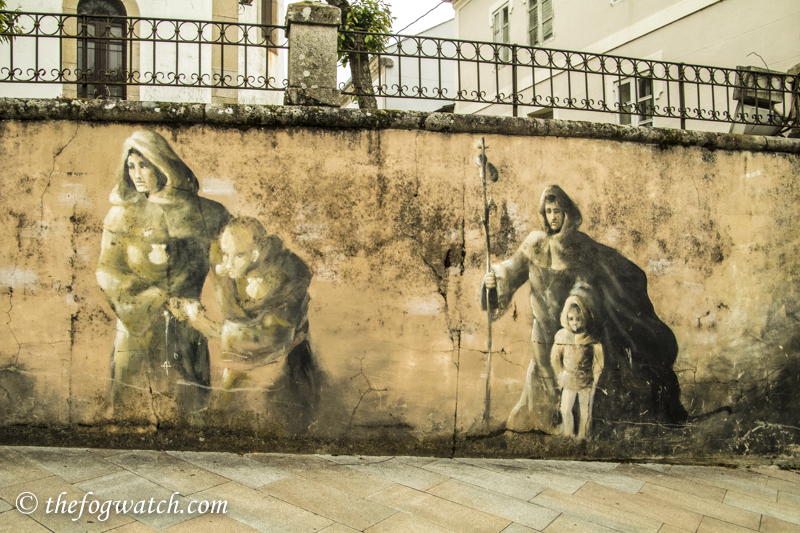
When you visit the pilgrim entrance to the Cathedral in Santiago you will notice above the door that the stonemason has reversed the order of the alpha and omega symbols – to signify that the end of the Camino is the beginning of the real journey.
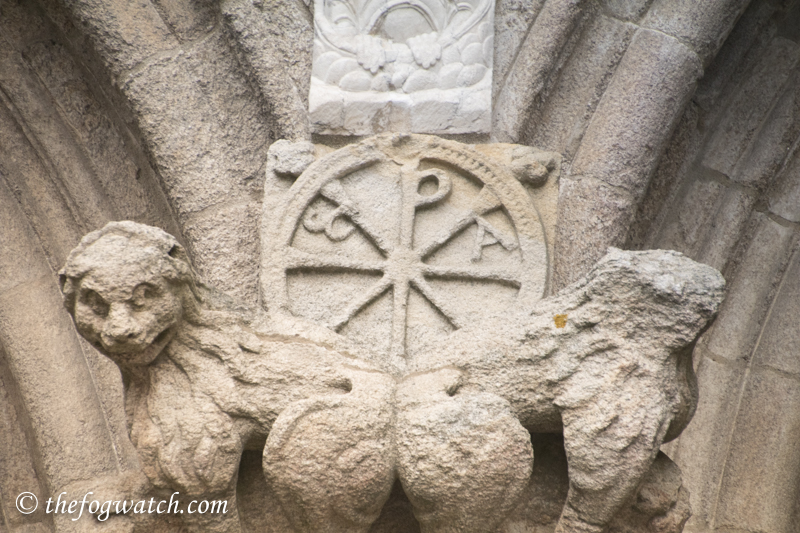
Returning from the Camino
One of the most difficult things about returning
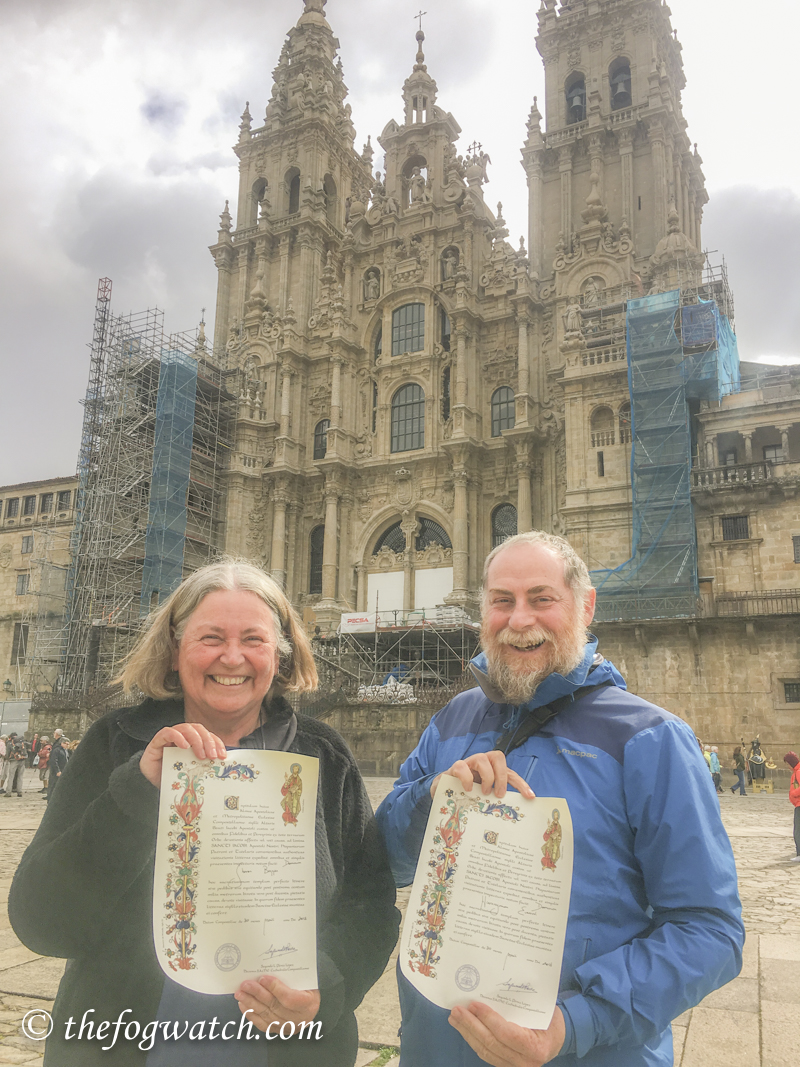
You want to share this peak experience with as many as possible, perhaps with the intensity of the interactions you had on the Camino. And their response may not be what you had hoped for. “Wait, You. Actually. WALKED. 500 miles?? That’s crazy, nobody walks anywhere these days!” And they rapidly change the topic. A lot of people return to ‘normality’ with a thump – and not because of the jet lag.
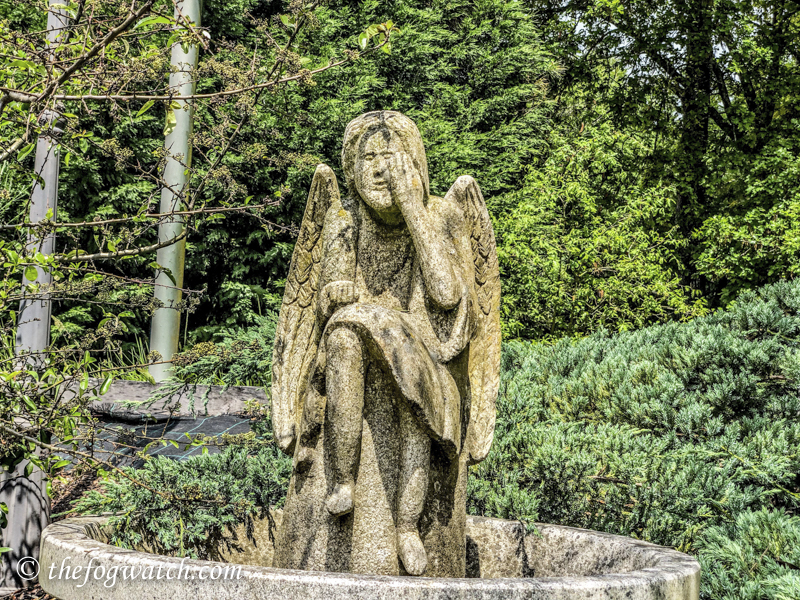
I certainly had a few of those responses. And then I remembered something from writing class years ago. “Show, don’t tell”. My problem, especially after our first Camino was that I tried to tell people what the experience was like, and went through the mechanics of it – 20km per day, walk-eat-sleep-walk for days on end. Some highlights, some challenges, and if I was lucky my friends lasted through the executive summary.
The challenge I found, was how to be a pilgrim when I’m not among pilgrims? And it comes back to the ‘show, not tell’ thing. It’s difficult to explain to someone just how profoundly the Camino affects us, but we have returned a different person from when we left. So I decided just to BE a pilgrim, and see what happens. What if I just continued to notice the small things and the daily positive things that happen each day? This is a form of mindfulness.
Mindfulness
I made sure that I took time out to smell the proverbial roses. Soon, I found myself appreciating others more – and noticed that I handled disagreements better.
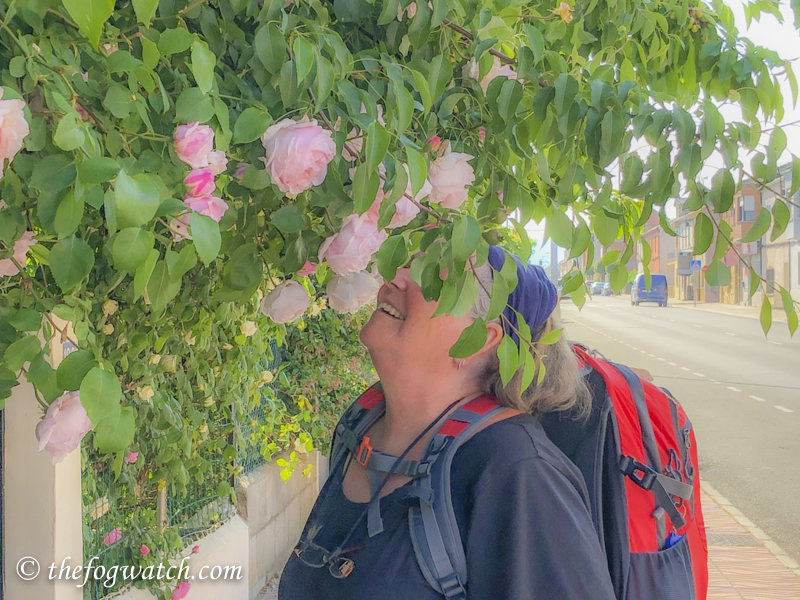
I tried to recognise that they were coming from a different viewpoint, and tried not to take things so personally – as I had done in the past. I found it takes a lot of practice to be a pilgrim. And I didn’t always succeed. But fundamentally, I knew something inside me had changed. My perspective was different.
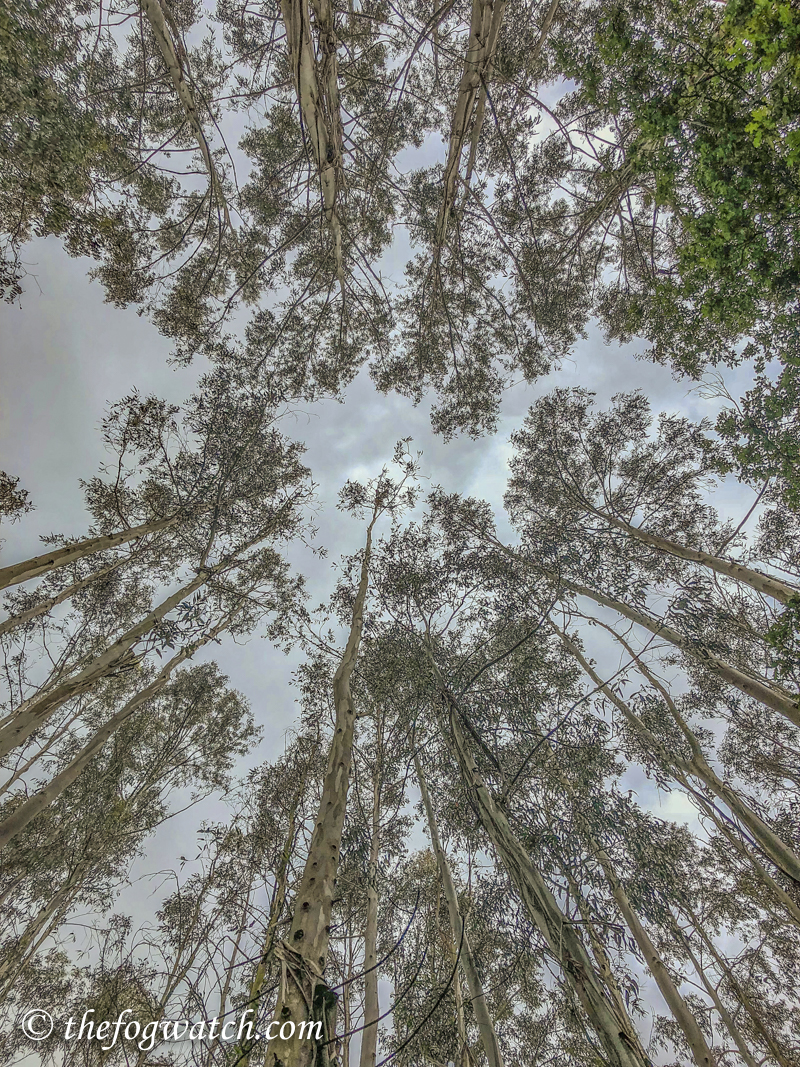
I am grateful for my life, and I am grateful for some aspect of each day. I think the Camino makes you more mindful. And while that doesn’t blind me to the ills of the world, I take heart knowing that there are also wonderful people working hard to fix things, or to keep us safe, or to nurture that creative spark in life.
Simplify
You reflect a bit on the lessons learned. What did you let go with your rock at the Cruz de Fero? What is your intention for today? How can I see the positive things better?
The Camino provides us with a way to gain perspective. It is a bit like taking everything out of the cupboard, now it’s time to decide what to put back in it, and what to discard.
For many people, returning from the Camino is a time to face great decisions – time to declutter and discard toxic relationships, rethink their career path, re-engage with life.
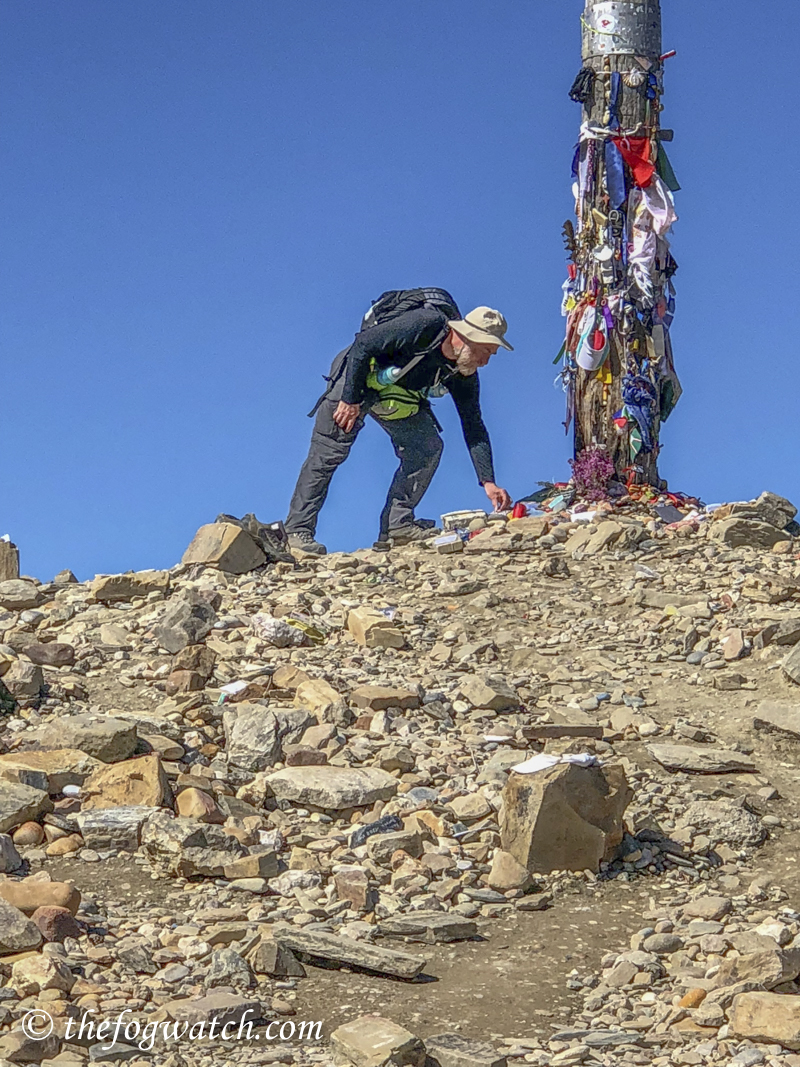
And it happens materially too. Everyone I’ve met who has returned has decluttered. You have learned that you can travel for several weeks with just two changes of clothes, and you come home to find that you have all this stuff that barely gets used.
I think the Camino provides us with a way to gain perspective. It is a bit like taking everything out of the cupboard, now it’s time to decide what to put back in it, and what to discard. And in the process, you feel a bit more in control of your life, and problems don’t seem so big anymore.
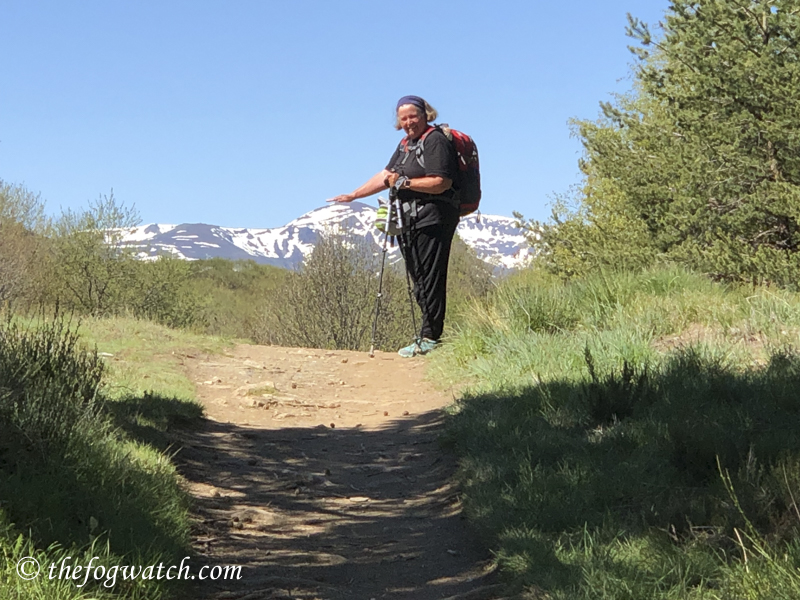
Looking out for others
On the Camino, pilgrims look out for each other with a trust and generosity of spirit often lacking in our daily lives. We talk to strangers as though they were friends we hadn’t met yet, rather than as a threat to us. But it’s hard when you return to your daily life, and find that that world is just as unfair and full of hustle as it always was. But I returned with the intention of being a pilgrim in life, and I was not to be dissuaded, any more than I was dissuaded from toiling over the Pyrenees. That doesn’t mean I was unafraid. My own country was now a bit foreign to me, just as Spain had been a few weeks ago.
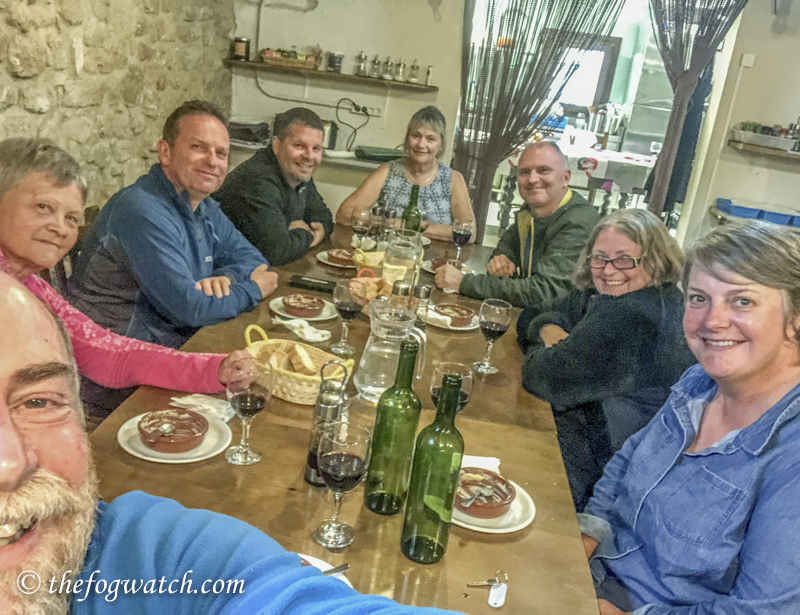
I started a bit tentatively with an exercise. I began reading the name tags on the person behind the checkout at the supermarket – the most overlooked and under-appreciated people on the planet. So when they gave their professional ‘How are you today sir?’ I would reply ‘I’m really well, thanks, Margaret, or Khalil, or George or Jyoti [insert name here] and I would make an effort to pronounce unusual names correctly, and ask them if I had. By the time I had paid for my groceries, they had a smile on their face that would last all day. It cost me nothing, but pretty soon they shared something about their lives, they were studying or they were from an interesting part of the world, or they had wonderful grandkids. With a small gesture, I learned to listen.
The same for those in my daily life. I listened more. And I gradually found it easier to ask for help when I needed it.
So I think there are three main aspects to returnng from a Camino:
- Firstly, mindfulness, which comes from reflecting on our lessons learned, gaining new perspective on our lives, and noticing the small things for which we can be grateful.
- Secondly, simplicity – decluttering mentally, removing ourselves from toxic relationships or workplaces, and finding compassion and appreciation for others, and decluttering physically – clearing our homes and desks of clutter, reflecting our inner simplicity based on our values and appreciation for life.
- Thirdly, looking out for others. When we are pilgrims we find ourselves helping others – we share stories, we listen to others’ stories. We are ‘there’ for them. It is the way of the pilgrim. Can we learn to listen more to others on our return?
There is a period of re-orientation after the Camino – others haven’t been on that journey, and we have changed, perhaps without being able to explain to others what is different about us. It can be a difficult transition. How to deal with this? You might
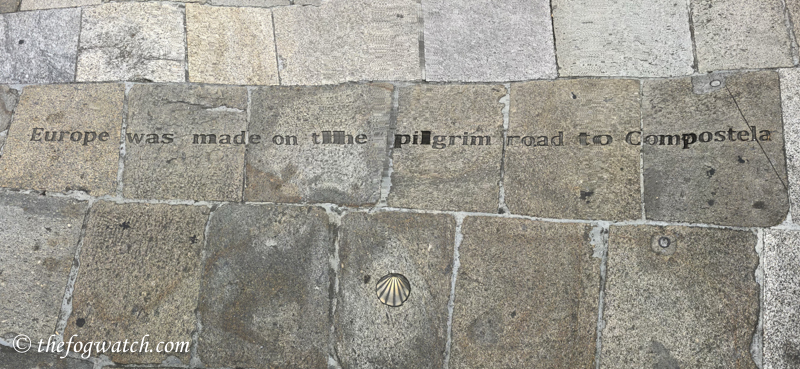
Perhaps we live more presently in the day, or the moment. Many have a decision to make about their future life-path. Maybe we listen more to others – the Camino is less about ourselves, and more about the community of people in which we find ourselves. Can we bring those thoughts back home and learn to be a pilgrim – by which I mean to be ‘that’ person who looks out for your fellow human being and learn to ask others ‘how are you feeling? Are you okay?’ Or even just being there for that person.
“Why do you go away? So that you can come back. So that you can see the place you came from with new eyes and extra
Terry Pratchettcolors . And the people there see you differently, too. Coming back to where you started is not the same as never leaving.”
The issues here, of course, apply to any travel – by experiencing another country, another community, we do alter our perspective and return to our own community changed. Someone once said: “Travel makes us strangers to our own kind.” Of course
Why not have these posts delivered to your in-box? Just enter your email address and click the ‘subscribe’ button in the left margin, and don’t forget to respond to the confirmation email in your in-box 🙂

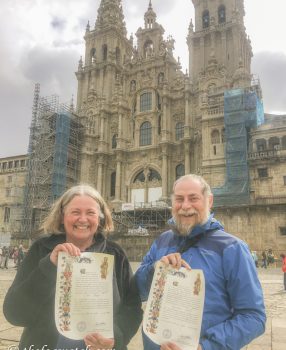
I come back to this post when I am feeling ‘lost’ in the world. Your words ground me every time and remind me of the Camino. It is just like walking with you again. I am so appreciative of the friendship we three began on the Camino. Thank you for putting these eloquent thoughts down.
Thanks, Tara, For me, part of the Camino is to share the experience, including the sharing that goes with the change in attitude that becoming a pilgrim entails. For me, the Camino is the entry point, and the real pilgrimage starts when you get home. We also appreciate the friendship we share with you and the thoughts and ideas we have all shared on the Camino and since – Buen Camino 🙂
This is beautiful, thoughtful, and quite helpful. Thank you so much for coming back and offering to show us the Pilgrim heart. Can’t wait for my own Camino!
Great!
Thank you and well done!
Thanks Alder – I’m glad you enjoyed it 🙂
As I will never get to visit the Camino it has been a real pleasure to travel along with you and Sharon, reading of your highlights and experiences with other people and cultures along the way and how to learn to be more understanding of such things.
Is there a possibility of a third visit?
Thanks for your comment Maureen – It’s great to see you enjoying our travels and the Camino in particular. We will probably do some ‘other’ travelling for our next trip, though always with a view to encountering other cultures and learning something about ourselves in the process. There is a real possibility of a third Camino – possibly along a different route, such as the Portuguese Caminho from Porto to Santiago, although the appeal of the main so-called ‘French’ route across Spain is that it is well serviced and is more sociable due to the numbers of people walking that route. I also have quite a bit more to write about our recent Camino, so watch this space 🙂 All the best, Jerry.
I will certainly be watching for more news and photos.
This was beautiful Jerry. I love how the journey has inspired you. Thank you for sharing.
M
Thanks Maggie – yes it was certainly an inspiring journey – I think you’d enjoy it 😉
Thank you, Jerry, I read it with much interest. Living in a new house again, in a new region with new people is like travelling. It is enriching. We made the step in May this year and are completely happy about it.
Thanks Anneliese – yes moving house to a new region can be like traveling to a new place. It is always enriching. I’m happy for you that you have made a good move and are enjoying the new place 🙂
Since I returned from my Camino in 2016 I find I am much more cognizant of time passing and having the urge to not waste a single moment. That doesn’t mean I don’t stop and smell the roses and appreciate each moment, but knowing also that I can’t get those moments back and I don’t want to waste any minute. There are so many things I want to do, people I want to meet and know better, books I want to read, enjoy my grandchildren more often… Its a feeling of the need to make a difference, make the world a better place, fulfill my existence.
Thanks Donna – I think the Camino teaches us to relish every moment – in many ways that is what mindfulness is – appreciating and being ‘present’ in each moment so that no time is wasted.
I like the lessons you took away from walking the Camino. I have had similar experiences when I’ve lived abroad for extended periods in four different countries. Each time I came away with an expanded view of the world, and an appreciation for the richness of different cultures. I also learned both positives and negatives about myself, how I can be independent and flexible, and sadly, how I can be impatient with certain aspects of cultures and people. Each time I return, I work on becoming more open-minded, and still not always succeeding. Life is a work in process. I have also experienced the challenges of returning home and having no one really care about my experiences. So I really enjoyed your post, especially in light of the fact I’m flying off tomorrow night to begin my own pilgrimage on the Camino. Thanks for sharing this. I actually found it on the Facebook page of American Pilgrims on the Camino. 🙂
Thanks for your comment Cathy – I think the experience is common to those who travel – whether Camino related or not. And it changes us in small and wonderful ways. We do learn more about ourselves, and of course, we get to see our own culture through fresh eyes. Cheers – Jerry
Thank you so much for this
You are most welcome, TT 🙂